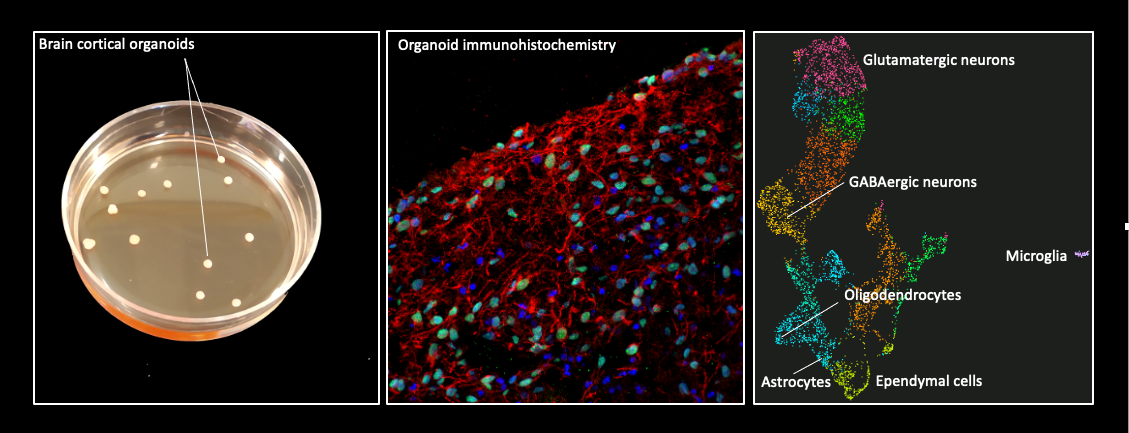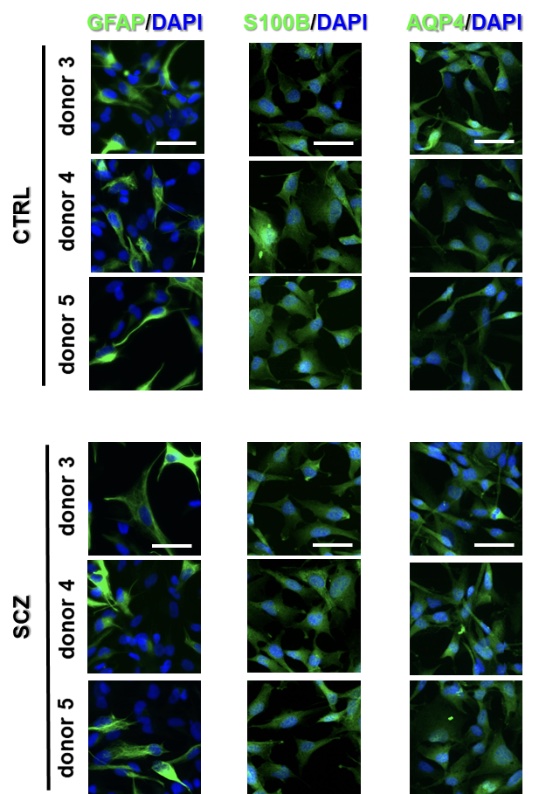Research projects:
- Human induced pluripotent stem cell (hiPSC) technologies in psychiatric molecular genetics (Figure 1)
- Neuro-immune interactions (Figure 2)
- Identifying the polygenic basis of the human brain and neurodevelopmental disorders
- Understanding the function of ANK3 in psychotic disorders
- Identifying mechanisms of rare genetic variants in population level brain imaging genetics for clinical subtyping in neurodevelopmental disorders
- Prediction of longitudinal outcome and brain phenotype by polygenic risk scores
- Genetics of neuropsychopharmaceutics
- Cooperation and biobanking with large-scale studies including the national cohorts and further collaboration with other large-scale studies for validation and QC steps

Figure 1 A) Representative image of control human induced pluripotent stem cell (iPSC)-derived brain cortical spheroids (hCS) at day 150 of differentiation. B) MAP2/VGLUT1/DAPI immunohistochemistry staining of human iPSC-derived mature cortical spheroid. C) UMAP clustering of single cell RNA sequencing of a healthy donor iPSC-derived cortical spheroid. Provided by Jordi R. Osete

